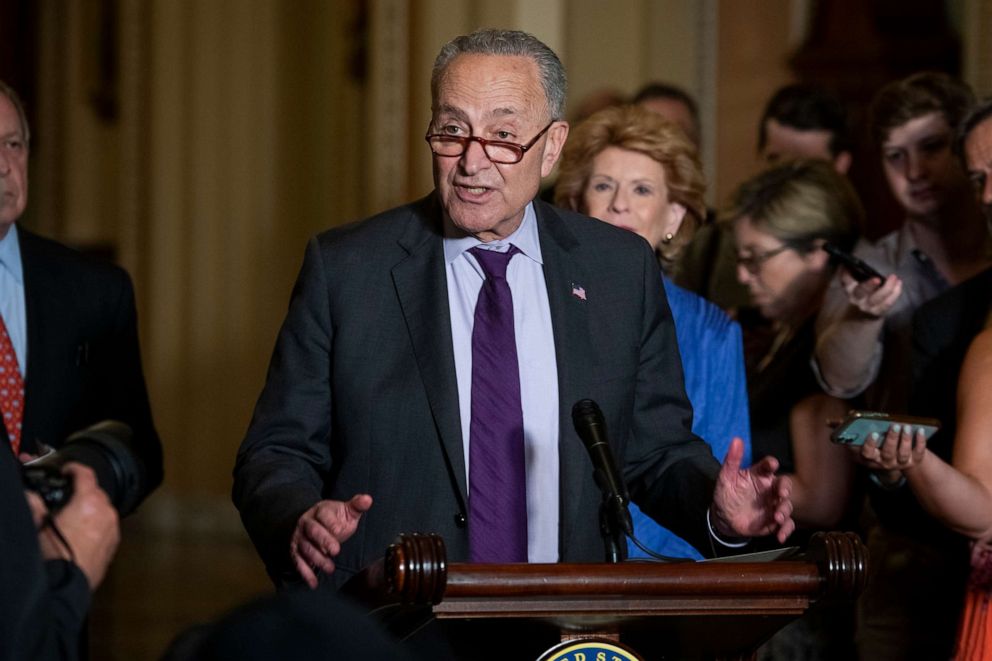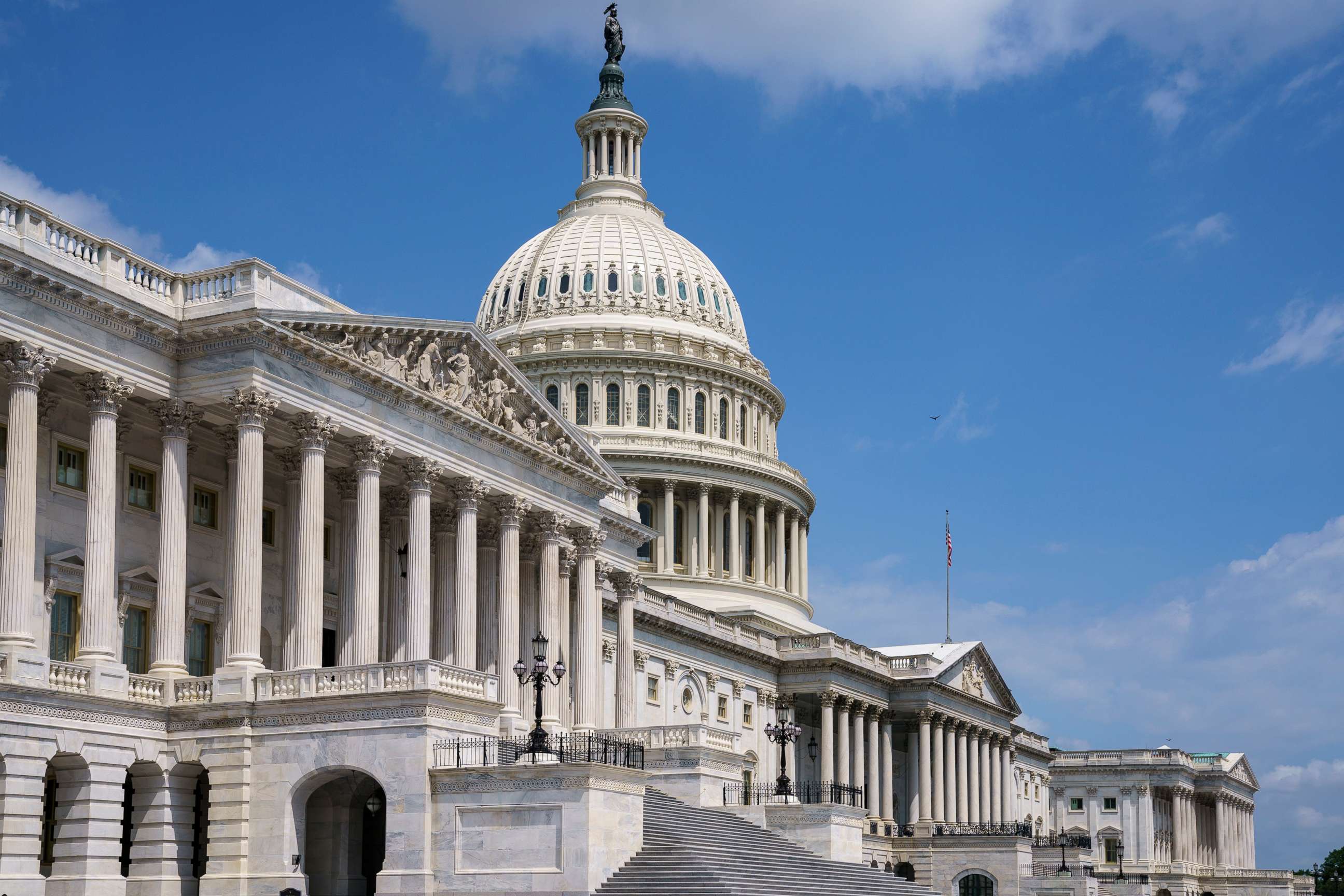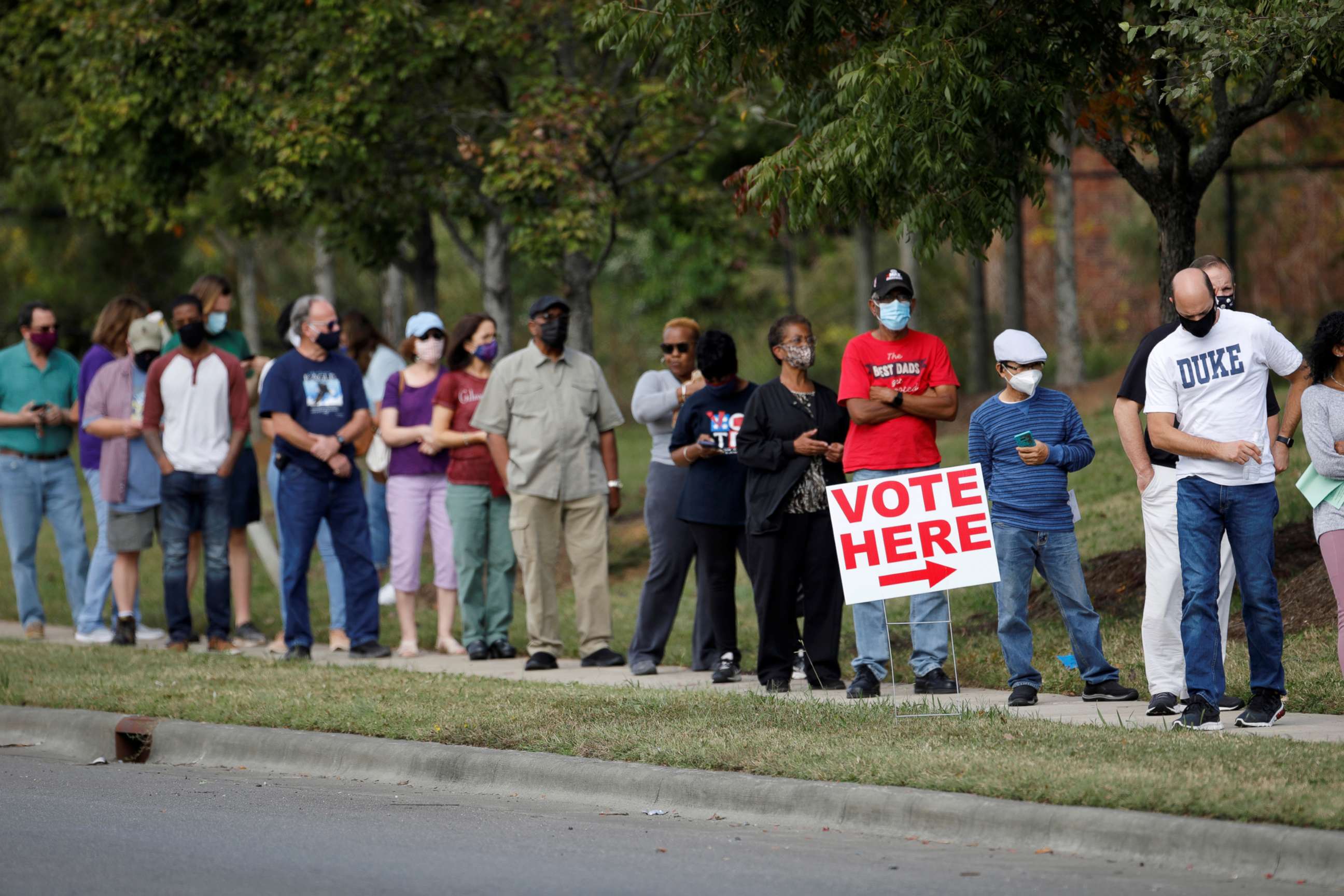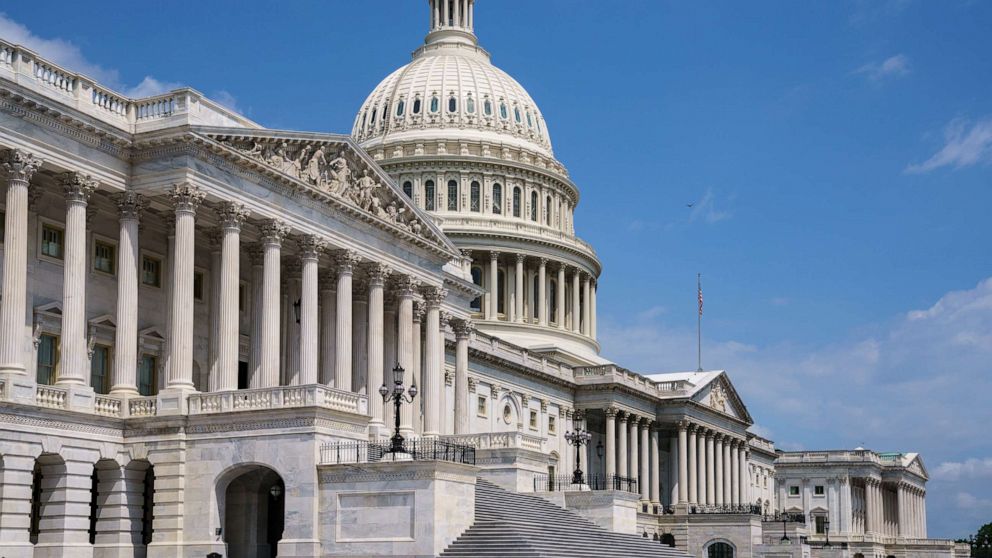Manchin to join Democrats in Senate showdown vote over voting rights
Senate Republicans on Tuesday were poised to block Democrats' landmark legislation on voting rights later in the day, but West Virginia Democrat Joe Manchin, who had been holding out, announced he would join his colleagues in a show of unity against the GOP move.
Senate Majority Leader Chuck Schumer said Manchin will vote to move forward with debate on the measure in exchange for a promise from Schumer that Manchin's proposed amendment with major changes would get a vote if debate opened.
Manchin released a statement saying while he does not support the original bill Democrats are pushing, he has "found common ground" on a possible new version.
Earlier, Manchin told ABC News Congressional Correspondent Rachel Scott, "We've just got to keep working. That's what we're here for."
The sweeping voting rights bill -- is a top priority for congressional Democrats and President Joe Biden -- but even with Manchin agreeing to vote to open debate, it appears certain Republicans will succeed in blocking the For the People Act from moving forward.
Despite Democrats not having the 60 votes necessary to overcome a GOP filibuster on the revised version of the S.1 elections reform bill, Schumer said Monday he's holding the vote, so even if it fails as expected, it will show Americans that congressional Republicans are actively making it harder for people to vote.
"It is spectacularly obvious that Republicans are making it harder to vote and easier to steal an election. The big lie that started with Donald Trump is infecting them," Schumer, D-N.Y., said on the Senate floor. "Republicans across the country are trying to stop the other side from voting that tears -- rips apart -- the very fabric of our democracy."

"Donald Trump lied over and over and over again, poisoning our democracy, lighting a fire beneath Republican state legislatures who immediately launched the most sweeping voter suppression effort in at least 80 years," he said.
The legislation is a sweeping election reform law that seeks to expand voter access to ballots through automatic registration, increased absentee ballots and early voting -- hallmarks of the pandemic -- as well as broaden campaign finance disclosures, limit partisan gerrymandering and institute federally financed campaigns.
Manchin has called for changes to the legislation, saying he wants to institute a more lenient form of voter ID -- something Democrats have opposed in the past, as well as allow for some purging of voter rolls and make Election Day a federal holiday.
Late Tuesday, the White House said Biden met with Manchin to discuss the voting rights legislation. Biden separately met with Sen. Kyrsten Sinema, D-Ariz., who supports the bill but not ending the filibuster in order to pass it. She published an op-ed in the Washington Post following the meeting to reiterate her position.
White House press secretary Jen Psaki said Tuesday the Biden administration's fight for voting rights is not over -- "no matter the outcome."
Senate Minority Leader Mitch McConnell countered Schumer Monday by accusing Democrats of trying to stage a takeover of the voting system and said Democrats have changed how they're trying to justify robust voting reform.
"The arguments here have one big thing in common with the ones our colleagues have deployed against the filibuster: Debunked claims of racism," McConnell said. "African American turnout was twice as high in Mississippi."
"At the end of the day which concocted crisis Democrats use as a justification for their top legislative priority doesn't make much difference. They've made it abundantly clear that the real driving force behind S.1 is a desire to rig the rules of American elections permanently in Democrats' favor," McConnell, R-Ky., continued.
The Democratic effort comes amid unprecedented action on voting rights and elections at the state level. The Brennan Center for Justice, a nonpartisan law and policy institute, reported last month that at least 14 states have enacted 22 new laws that restrict access to the vote since the start of the year. Nearly 400 bills have been filed in 48 states.

What are the bill's key provisions?
It seeks to expand voter access, broaden campaign finance disclosures, limit partisan gerrymandering and institute federally financed campaigns, among other measures Democrats say would bolster ethics in elections.
The House passed a similar bill earlier this year 220-210, with one Democrat joining all voting Republicans to oppose the measure.
In part, the Senate measure would:





